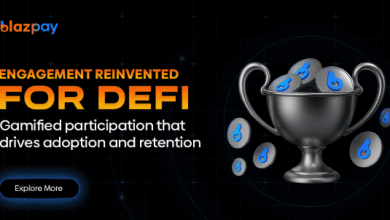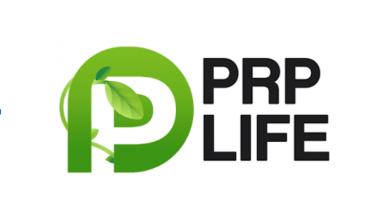Revolutionizing Impairment Detection with Machine Learning and Virtual Reality: The Gaize Solution
Introduction
As technology continues to evolve, industries worldwide are exploring innovative ways to tackle age-old problems. One such innovation is Gaize, which combines machine learning (ML) and virtual reality (VR) to create a real-time impairment detection system for cannabis and other drug use. With the increasing legalization of marijuana and the rise of workplace drug use, the need for reliable impairment detection methods has never been more critical. Gaize’s groundbreaking approach leverages ML and VR to provide real-time, accurate assessments of impairment, offering a new standard in workplace safety and employee monitoring. This article delves into how Gaize integrates these two technologies to offer a novel and effective solution for the modern world.
The Need for Real-Time Impairment Detection
Traditionally, drug testing has been the go-to method for detecting impairment in the workplace. However, most traditional tests only detect the presence of a substance and cannot differentiate between past use and current impairment. This limitation is especially problematic with cannabis, as THC can remain in the system long after the intoxicating effects have worn off. As more states and countries legalize cannabis, employers are left navigating a gray area where cannabis use is legal but impairment is still dangerous, especially in safety-sensitive industries like transportation, construction, and healthcare.
This gap in testing is compounded by the legal complexities surrounding marijuana use and impairment. Employers are now faced with the challenge of ensuring that employees are fit to perform their duties without compromising workplace safety. This is where Gaize comes in—offering an advanced, real-time impairment detection system that uses machine learning and virtual reality to assess a worker’s level of impairment, whether due to cannabis or other drugs.
How Gaize Works: The Technology Behind the Solution
At its core, Gaize combines two transformative technologies—machine learning and virtual reality (VR)—to deliver an unprecedented approach to real-time impairment detection. Let’s break down how these technologies work together to create an accurate and efficient system.
Machine Learning for Cognitive and Behavioral Analysis
Machine learning, a subset of artificial intelligence (AI), allows systems to learn from data, improve over time, and make predictions without explicit programming. In Gaize, ML algorithms are trained to recognize patterns of cognitive and behavioral impairment. These patterns are derived from real-time data collected through eye-tracking and behavioral responses.
- Eye-Tracking: One of the first signs of impairment from substances like cannabis is the alteration of eye movements and tracking. Gaize uses advanced eye-tracking sensors to monitor eye movement patterns, reaction times, and pupil dilation. These subtle changes in visual behavior are critical indicators of cognitive impairment caused by cannabis or other drugs. By analyzing this data, Gaize’s machine learning model is able to assess whether an individual is impaired at the time of testing.
- Reaction Time and Cognitive Function: In addition to eye-tracking, Gaize also assesses an individual’s cognitive functions through tasks designed to measure reaction time, decision-making, and visual processing. The ML algorithms interpret these responses to determine the level of impairment and whether the individual is fit to perform tasks that require high focus and decision-making ability.
Virtual Reality for Simulated Testing Environments
While traditional impairment testing often involves static, physical tests, Gaize takes it a step further by incorporating virtual reality (VR) to simulate real-world environments and tasks. VR is an immersive technology that creates a computer-generated, interactive experience. In the case of Gaize, VR is used to place individuals in realistic, job-specific scenarios where their reactions to stimuli, behavior, and decision-making abilities are tested.
- Immersive Testing: Gaize uses VR headsets to immerse employees in simulated environments where they must perform tasks that are common in their workplace. For example, a worker in construction may be tested by navigating a virtual worksite, while a driver might be placed in a driving simulation. The VR system provides real-time feedback based on how the individual responds to the situation, allowing Gaize’s machine learning model to assess whether their performance is impaired due to cannabis or other substances.
- Simulating Real-World Challenges: VR allows for the creation of highly controlled environments where the impact of impairment can be tested under varying conditions. Since different environments require different cognitive skills—such as visual perception, memory, and motor coordination—VR provides a comprehensive assessment of how impairment from cannabis or drugs may affect someone in a specific job setting.
The Advantages of Gaize’s Approach
The integration of machine learning and virtual reality gives Gaize a unique edge over traditional impairment detection methods. Here are the primary advantages of Gaize’s approach:
- Real-Time Detection: Gaize provides real-time assessments of impairment, making it possible for employers to instantly determine whether an employee is fit to work. Unlike traditional drug tests, which provide results after a delay, Gaize’s system is immediate and accurate.
- Accurate and Objective Assessment: Traditional drug testing methods often rely on subjective interpretations or physical observations, which can be influenced by biases. Gaize’s technology, however, provides an objective, data-driven approach to detecting impairment. The combination of eye-tracking, reaction time analysis, and VR simulations ensures that the assessment is both accurate and comprehensive.
- Holistic Measurement: By combining behavioral, cognitive, and physiological data, Gaize offers a holistic view of impairment. Unlike THC tests that only indicate the presence of the substance, Gaize provides a full picture of how impairment manifests in an individual’s cognitive function and behavior in real-world situations.
- Improved Workplace Safety: In safety-sensitive industries, even small lapses in focus or motor skills can result in accidents or costly mistakes. Gaize helps prevent such occurrences by providing employers with the tools to detect impairment before it leads to a dangerous situation.
- Scalability and Flexibility: Gaize is scalable and can be adapted to various industries and job roles. From healthcare to transportation, the system’s virtual reality simulations can be tailored to specific work environments, making it a versatile solution for businesses in diverse sectors.
Future Prospects: Expanding Beyond Cannabis
While Gaize currently focuses on cannabis impairment detection, its potential applications extend far beyond marijuana use. The system can be adapted to detect impairment from a variety of substances, including alcohol, prescription drugs, and other illegal drugs. As workplace safety concerns continue to grow in industries like aviation, construction, and healthcare, Gaize’s technology offers an opportunity to address a wide range of impairment-related challenges.
Furthermore, as machine learning algorithms improve and VR technology becomes even more immersive, the accuracy and effectiveness of Gaize’s system will only continue to increase. This opens up possibilities for broader use in public safety, law enforcement, and even consumer markets where impairment detection is crucial.
Conclusion
Gaize.ai is leading the way in revolutionizing the detection of cannabis and drug impairment with its innovative use of machine learning and virtual reality. By combining real-time data collection, cognitive analysis, and immersive simulations, Gaize provides a more accurate and objective way to assess impairment in the workplace. This novel approach is helping businesses stay compliant with regulations, improve safety, and maintain productivity, all while addressing the complexities of marijuana legalization. As the demand for effective impairment detection continues to grow, Gaize is positioned to play a key role in shaping the future of workplace safety and employee health.

Source: Revolutionizing Impairment Detection with Machine Learning and Virtual Reality: The Gaize Solution



